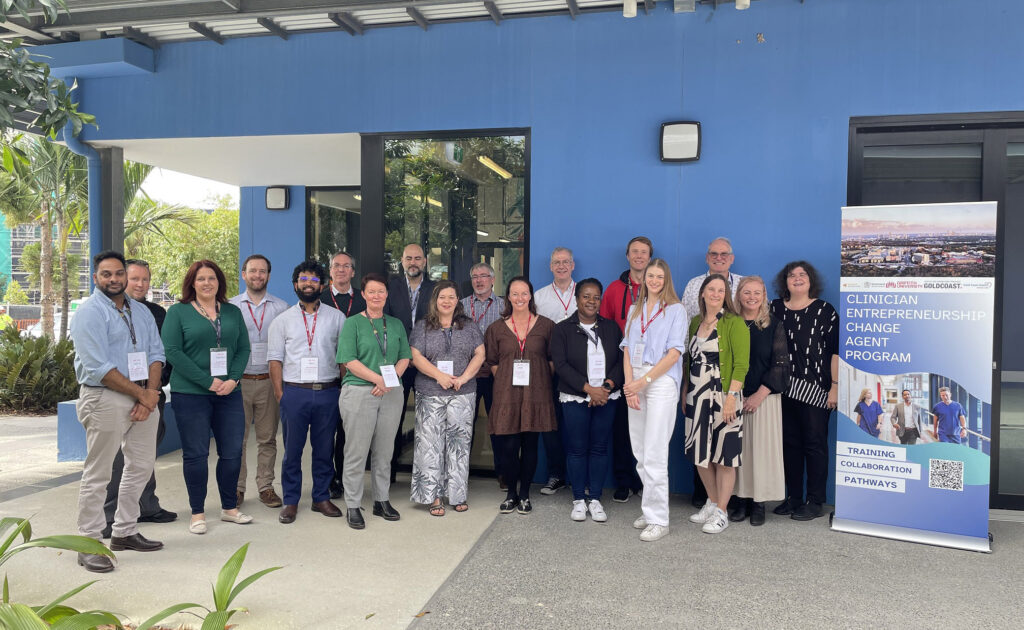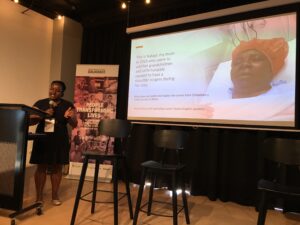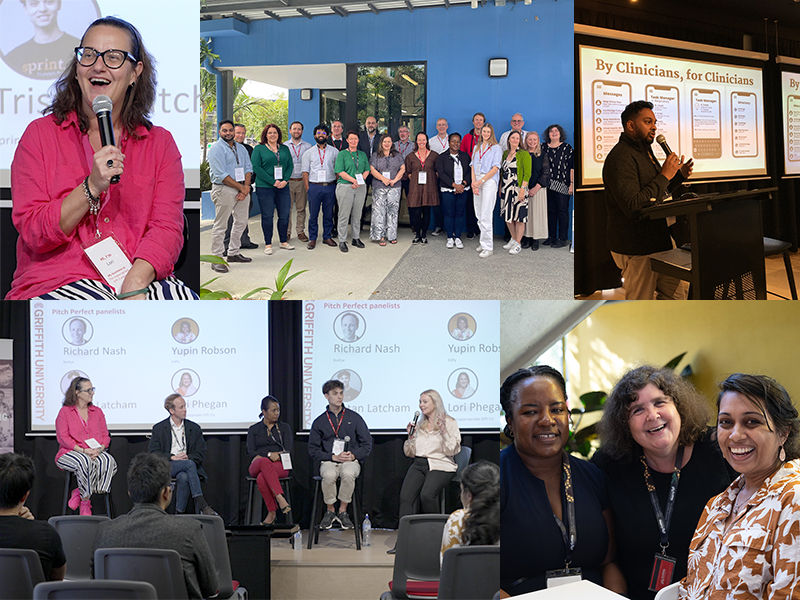
The first cohort of 12 clinicians has taken the leap into the world of entrepreneurship, as GCHKP pilots a training program developed to build in clinicians an innovation mindset and the steps needed to take their healthtech concepts to market.
Delivered by Griffith Business School, in partnership with Gold Coast Health and supported by Advance Queensland, the Clinician Entrepreneurship Change Agents Program (CECAP) has got off to a successful start, with a second cohort set to start in October.
Clinicians are great at identifying problems – and there are plenty in the healthcare system! They’re also good at coming up with solutions. But what they really need is a shift to an entrepreneurial mindset and that’s where CECAP comes in.
“I came into CECAP with a problem emanating from my work as a nurse in communicating with people from non-English speaking backgrounds,” says Doreen Muzhingi, from Sunshine Coast University Hospital.

It was also personal, as Doreen told the audience in her ‘pitch practice’ presentation at the end of the workshop and personalised mentoring program. Her non-English-speaking mother was left confused and fearful after being hospitalised while visiting Doreen from overseas. Such personal motivation is often the bright spark behind an idea that then needs opportunity evaluation, market sounding, business planning and technical advice to be developed into a marketable product or innovation. Or to be shelved, in favour of a new idea – a common start-up pivot.
“We do have interpreters, but they are not accessible, and people can miss out on treatment, stay longer or discharge against medical guidance because they don’t understand,” Doreen says. “My solution is a multi-lingual interactive app to bridge communication between nurses and other clinicians and their patients.”
“I can’t pinpoint one thing with CECAP, everything was valuable, but I did like that they told us on the first day to expect failures, and to get back up and take on all the feedback.”
For Gold Coast University Hospital Emergency Department nurse Kelsey Hicton, CECAP honed her idea, while making her look closely at what was already available in the market.
“My CECAP project is based around wireless ECG and Cardiac monitoring in the emergency department,” says Kelsey.
“There are some products available for at-home use and I want to bring a version into the hospital environment to improve ergonomics and patient comfort and to reduce person hours.”
“I think my most valuable takeaways from CECAP are about how clinicians are stuck in a certain way of thinking, and how we need to take on different perspectives and change our delivery style to reframe how we present to investors. The mentoring sessions as well have been amazing, everyone has been so supportive.”
CECAP delivered 7 workshop modules, a combined 60 hours of mentoring, 6 guest speakers and networking opportunities

Program Lead, Professor Naomi Birdthistle, says it was great to see the evolution of the first cohort, with ideas including an app-based communication tool to streamline communications between doctors, an AI-enabled predictive tool to plan patient discharge pathways from as early as their admission, and development of physical products.
“Some in our group were in the early exploratory stage, while others had a more fixed idea and everyone was able to refine and sometimes change their thinking,” says Professor Birdthistle.
“We even had two physical prototypes produced, in partnership with Griffith’s Advanced Design and Prototyping Insititute (ADaPT) – a specialised eco-friendly tray design to streamline intubation of patients and reduce medical waste, which was produced by Anaesthesist Assistant Alex Savin, and a small thumb-sleeve device to help frail elderly and arthritic patients open packaged hospital foods, designed by Allied Health Nutritionist Julian Ryan.”
Podiatrist and biomechanical researcher Dr Jahishni Maharaj also honed her business skills alongside her designs for orthoses to help prevent diabetic foot ulcers.
CECAP has received more than 200 expressions of interest in total, including those who are undertaking an online Business Literacy Program. A second workshop cohort is set to start next month and the program is wait-listing for 2024.
Check out our videos
Cohort 1 kicks off:
Introduction to CECAP: